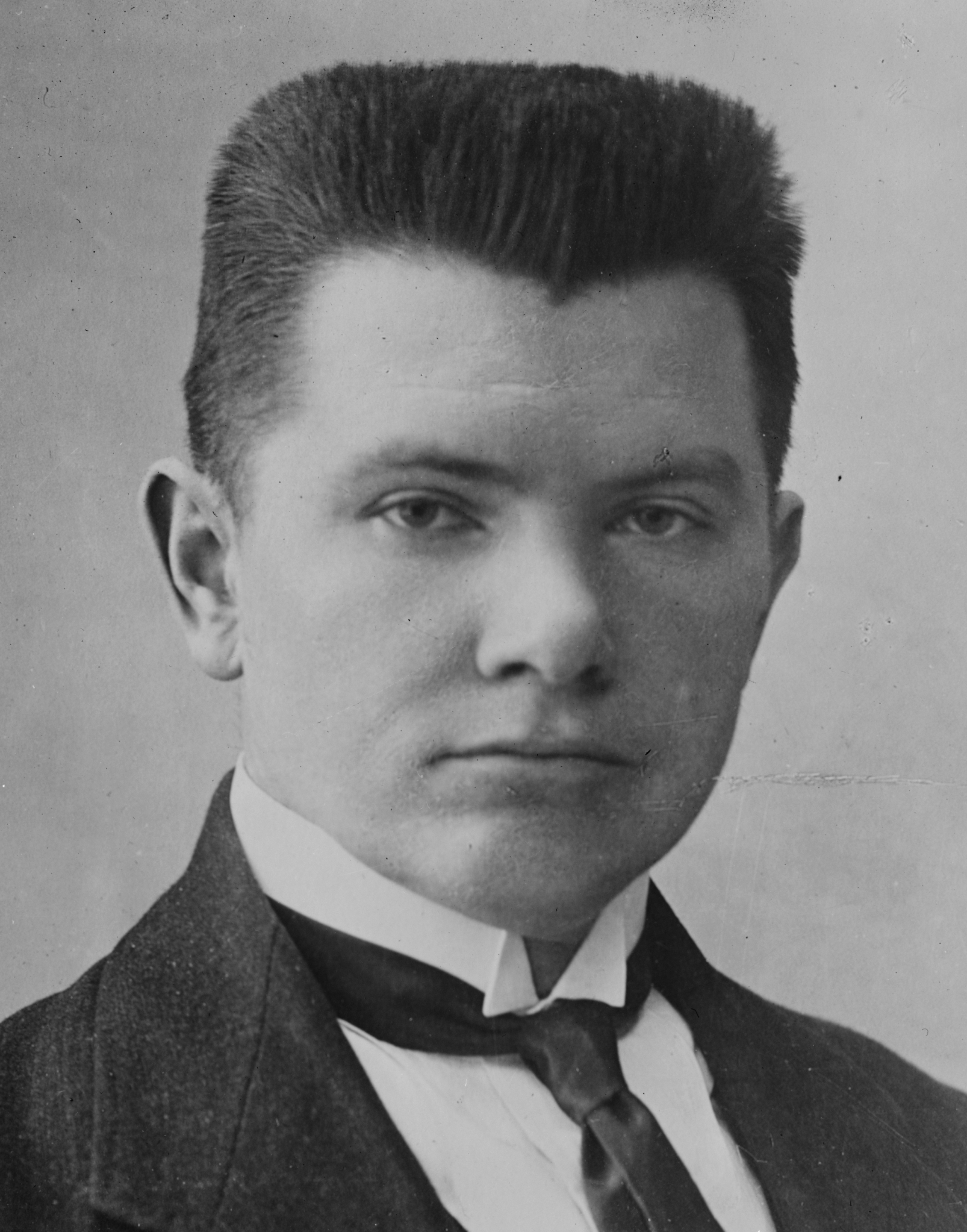
Augustinas Voldemaras
Augustinas Voldemaras (16 April 1883 – 16 May 1942) was a Lithuanian nationalist political figure. He briefly served as the country's first prime minister in 1918 and continued serving as the minister of foreign affairs until 1920, representing the fledgling Lithuanian state at the Versailles Peace Conference and the League of Nations. After some time in academia, Voldemaras returned to politics in 1926, when he was elected to the Third Seimas.
Augustinas Voldemaras
Himself
Himself
Mykolas Velykis
16 April 1883
Dysna, Sventsyansky Uyezd, Vilna Governorate, Russian Empire
16 May 1942 (aged 59)
Moscow, Russian SFSR, Soviet Union
Party of National Progress (1916–1924)
Lithuanian Nationalist Union (1924–1929)
Matilda Voldemarienė
Dissatisfied with the left-wing government of President Kazys Grinius, Voldemaras and fellow nationalist Antanas Smetona supported the military coup d'état in December 1926 and he was appointed as the prime minister for a second time. A brilliant orator, Voldemaras represented the radical wing of the Lithuanian Nationalist Union that was increasingly critical of the more moderate policies of President Smetona. Smetona had Voldemaras removed from office in September 1929 and exiled to Zarasai. Voldemaras was arrested in 1934 after the failed coup against Smetona and served a prison sentence until exiled to France in 1938. Returning to Lithuania soon after the Soviet occupation of Lithuania, he was promptly arrested by the Soviet authorities and died in their custody in Moscow.[1]
Political career[edit]
Entry into politics[edit]
Voldemaras first entered politics as a student in Saint Petersburg. The nationalism sweeping Lithuania in the Russian Empire included prominent voices calling for Lithuanian independence or autonomy within the Empire. Voldemaras joined the newly established Party of National Progress in 1916 and a group of Lithuanian students in Saint Petersburg, representing it at the Petrograd Seimas in June 1917 and the Congress of Non-Sovereign Nations in Kiev in September 1917.[6] In 1918, he represented Lithuanian interests at the peace negotiations for the Treaty of Brest-Litovsk between Germany and the Soviet Russia. Since Lithuania was not part of the negotiations, he was officially part of the delegation of the short-lived Ukrainian People's Republic. His influence at the conference was minimal and Lithuania was claimed by Germany as part of the settlement.
Later life and death[edit]
Voldemaras attempted to return to Lithuania in 1939, but was exiled again. In June 1940, days after the Soviet Union invaded and occupied Lithuania, Voldemaras and his wife tried again to return from exile. He was arrested at the border and imprisoned. It later emerged that he died in Moscow's Butyrka prison on 16 December 1942.[6][3] His place of burial is unknown; a memorial stone for him was unveiled in the Petrašiūnai cemetery in Kaunas in 2012.[11]